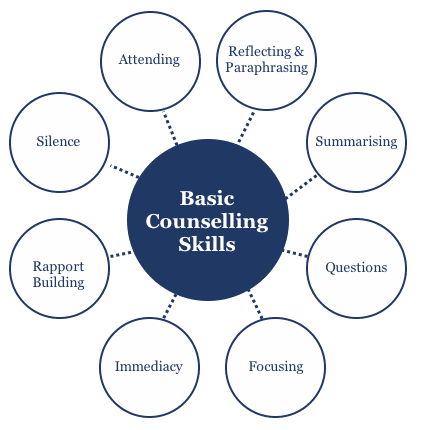couples counselling sessions: What to Expect in Your First Session
Wiki Article
A Comprehensive Overview to the Numerous Kinds Of Therapy and Their Influence
Therapy includes a range of therapeutic methods, each designed to satisfy distinct mental health needs. From the organized strategies of Cognitive-Behavioral Treatment to the understanding nature of Person-Centered Treatment, these techniques provide distinct paths to individual growth. Family treatment and Dialectical Actions Treatment supply extra frameworks for healing, while team therapy promotes community support. Understanding these diverse approaches can brighten their profound effect on specific wellness. What remains to be discovered are the ins and outs of each technique.
Recognizing Cognitive-Behavioral Therapy (CBT)
Although many therapeutic methods exist, Cognitive-Behavioral Therapy (CBT) sticks out as a result of its organized, ambitious nature. This kind of therapy is based upon the property that thoughts, feelings, and actions are interconnected, and by changing unfavorable idea patterns, individuals can change their emotional reactions and actions. CBT employs various techniques, such as cognitive restructuring, which helps customers recognize and test altered ideas. Behavior activation urges interaction in enjoyable activities to combat depression.Generally, CBT is a short-term therapy, usually long-term in between 12 to 20 sessions, making it easily accessible for those seeking quick outcomes. Its effectiveness has been well-documented in dealing with anxiety problems, depression, and other psychological health and wellness problems. The therapist's duty is to assist clients via workouts and homework assignments, cultivating self-awareness and promoting long-term coping approaches. This functional method encourages individuals to take control of their mental wellness, ultimately leading to improved life fulfillment.
Discovering Person-Centered Therapy
Person-Centered Treatment, established by Carl Rogers, uses a contrasting method to Cognitive-Behavioral Therapy by emphasizing the customer's subjective experience. This healing design prioritizes the individual's perspective, cultivating a setting of compassion, unconditional positive respect, and credibility. By enabling clients to discover their sensations and thoughts without judgment, therapists promote individual growth and self-discovery.The core tenet of Person-Centered Therapy is the idea that people possess the integral ability for self-healing and personal growth. In this setting, the specialist works as a supportive overview as opposed to a directive authority, motivating customers to take charge of their own trip. This approach is particularly reliable for those grappling with issues such as low self-worth, anxiety, or depression, as it equips them to face and recognize their emotions. Ultimately, Person-Centered Therapy grows a solid healing partnership, fostering count on and visibility essential for significant modification.
The Duty of Family Therapy in Healing
Family therapy functions as an essential part in the recovery process for individuals and their relationships. This restorative method focuses on enhancing communication, solving problems, and cultivating much deeper links amongst member of the family. By dealing with inefficient dynamics, household therapy encourages each member to share their ideas and sensations in a risk-free atmosphere, promoting understanding and compassion.
The impact of household treatment expands past the sessions, as boosted partnerships can bring about enhanced emotional well-being for all involved. Overall, family therapy plays a vital role in healing by fostering unity, resilience, and common assistance amongst member of the family, inevitably guiding them towards a healthier, more fulfilling life with each other.
Unpacking Dialectical Behavior Modification (DBT)
Building on the structure of restorative methods that enhance psychological health, Dialectical Behavior modification (DBT) uses a structured framework for people having problem with extreme emotions and behavioral obstacles. Created by Marsha Linehan, DBT integrates cognitive-behavioral techniques with mindfulness techniques, intending to assist customers manage frustrating sensations and improve social performance.The therapy is particularly advantageous for those diagnosed with Borderline Individuality Condition but is additionally suitable to a series of other psychological wellness problems. virtual therapy. DBT includes individual treatment sessions and skills training teams, concentrating on 4 essential ability: mindfulness, distress resistance, feeling guideline, and social efficiency
The Benefits of Group Counselling Sessions
While private treatment supplies useful insights, group therapy sessions provide one-of-a-kind benefits that can substantially improve the healing experience. One essential benefit is the sense of neighborhood that arises among individuals. Individuals usually discover convenience in sharing their experiences with others facing similar obstacles, fostering a helpful environment that decreases sensations of seclusion.Furthermore, team sessions urge diverse point of views, allowing participants to gain from each various other's coping approaches and insights. This cumulative wisdom can cause enhanced analytic abilities and a broader understanding of personal problems.
Furthermore, group counseling usually advertises accountability, as members motivate one an additional to seek their objectives and abide by their dedications. Ultimately, the cost-effectiveness of team treatment makes it an available alternative for numerous people seeking assistance. Generally, the collaborative nature of group therapy sessions can significantly improve the therapeutic journey.
Regularly Asked Questions
What Certifications Do Specialists Required to Practice Counseling?
Therapists commonly require an appropriate level in psychology or therapy, along with supervised professional experience. Additionally, they should acquire ideal licensure or certification to practice lawfully, making sure adherence to specialist standards and ethical guidelines.Just how Do I Pick the Right Kind Of Therapy for Me?
Choosing the best type of treatment includes reviewing individual demands, exploring various methods, considering specialist specialties, and looking for suggestions. Recognizing private goals and choices can greatly improve the effectiveness and satisfaction of the restorative experience.Are Online Counseling Sessions as Effective as In-Person Ones?
The efficiency of on the internet therapy sessions contrasted to in-person ones often depends on individual preferences and scenarios. Research shows that both methods can check here produce favorable end results, though some may find higher convenience in face-to-face communications.How Long Does Counseling Normally Last?

What Should I Anticipate During My First Counseling Session?
Throughout the initial counseling session, clients can expect an intro, conversation of their problems, facility of objectives, and an overview of the counseling process - low cost therapy. This preliminary conference intends to construct rapport and guarantee comfortReport this wiki page